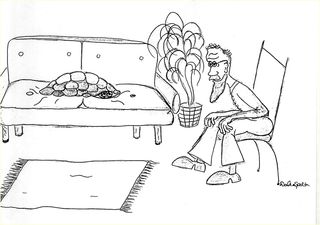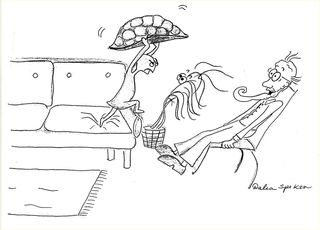Attention
Therapeutic Alliance Ruptures
Research sheds light on what to do when therapy isn't working.
Posted January 23, 2018 Reviewed by Jessica Schrader


Over the last 30 years, psychotherapy research has clearly demonstrated that the quality of the relationship between client and therapist (or what is referred to as the therapeutic alliance) is a much better predictor of whether therapy works than the particular brand of therapy (e.g., cognitive-behavioral, psychodynamic, humanistic, etc.). In the late 1980s, my colleagues and I began conducting research on what we called “therapeutic alliance ruptures.” [1] Alliance ruptures are moments or periods in therapy when there is a strain or breakdown in the therapeutic alliance. These ruptures can range in quality and intensity from dramatic episodes during which clients lose trust in their therapists and may drop out of treatment, to more subtle ruptures during which they have a vague sense that something is not right, but ignore.
We began to find that alliance ruptures are extremely common in all types of therapy, and that often clients are reluctant to bring up concerns about how the therapy is going with their therapists. They can also be very reluctant to talk about any concerns or negative feelings they have about their therapists. Even more troubling was the finding that therapists often fail to notice when there are ruptures in the therapeutic alliance. Moreover, when they do notice ruptures, therapists often lack the skills to deal with them in a constructive way. The good news is that when therapists are good at detecting ruptures in the therapeutic alliance and have the skills to work with them therapeutically, it can end up being one of the most valuable things that happen during the treatment. [2]
Since the late 1980s, my colleagues and I have continued to conduct research on what leads alliance ruptures to take place, and how best to address them in treatment. We have also developed training programs for therapists that focus on working with alliance ruptures and conducted research supporting the value of this type of training. [3][4]
Many other research teams around the world have also been studying the topic of alliance ruptures, and there is a large and growing body of empirical evidence that provides clear guidelines to therapists regarding how to identify alliance ruptures and work with them therapeutically. [5]
Here are some general guidelines for therapists:
- Provide a clear therapeutic rationale for your techniques, actions, and/or behaviors.
- Expect that there will be ruptures in the therapeutic alliance, and recognize that they provide valuable opportunities for exploration and change rather than obstacles to treatment.
- Pay careful attention to the level of agreement between you and your client concerning the overall goals of treatment and the tasks necessary to achieve those goals.
If a client expresses concerns or complaints about a particular way of proceeding in therapy, work with him or her collaboratively to explore alternative ways of proceeding:
- Respect your clients' defenses and explore their adaptive function collaboratively.
- Discuss the here-and-now of the therapeutic relationship with your client.
- Give and ask for feedback about the therapeutic relationship.
- Track your clients' responses to all interventions.
- Pay attention to subtle cues that there may be a problem with the alliance.
- Remember that problems in the alliance can be difficult to detect and often show up as in the form of compliance or withdrawal.
- Allow and encourage clients to assert their negative feelings about the therapeutic relationship.
- Accept responsibility for your part in alliance ruptures.
- Admit mistakes when you have made them.
- Explore clients’ fears about asserting negative feelings about the treatment or the therapeutic relationship.
- Pay attention to fluctuations in your own feelings as potential cues about what may be going on in the therapeutic relationship.
Below are some general tips for clients:
- Remember that the quality of the therapeutic alliance is one of the better predictors of whether or not your therapy will be helpful.
- Do you feel that you and your therapist are on the same page?
- Do you trust your therapist?
- Do you have confidence that the way you and your therapist are working in therapy makes sense?
- Does your therapist respond to your questions about how therapy works in a straightforward and nondefensive way?
- Remember that ruptures in the alliance are common in therapy and that discussing them with your therapist can be a valuable part of the treatment process.
- Don’t be afraid to bring it up in the session, if you feel misunderstood by your therapist or you’re feeling, mistrustful skeptical, hurt or angry.
- If you are considering quitting treatment because you feel your therapist is not on the same page as you, first try bringing up your concerns to see how he or she responds.
- Does your therapist seem open to discussing ruptures in the therapeutic alliance with you?
- Does your therapist seem open to admitting mistakes?
If you find that your therapist becomes defensive or blames you when you bring up your concerns about how the treatment is going or the therapeutic relationship, it's probably time to look for another therapist.
If, however, your therapist seems open, and makes a genuine attempt to see things from your perspective and to explore how he or she may be contributing to the rupture, it's probably worth giving things a chance. Working through alliance ruptures can take time, but it can also be an extremely valuable part of your treatment.
Research on therapeutic alliance ruptures has become an increasingly important area of investigation, and new developments are emerging on an ongoing basis.
References
[1] Safran, J.D., Crocker, P., McMain, S., & Murray, P. (1990). The Therapeutic alliance rupture as a therapy event for empirical investigation. Psychotherapy, 27, 154-165.
[2] Safran, J.D., Muran, J.C., Wallner Samstag, L. & Stevens, C. (2001). Repairing therapeutic alliance ruptures. Psychotherapy, 38, 406-412.
[3] Safran, J. D. , Muran, J. C., Demaria, A., Boutwell, C., Eubanks-Carter, C. & Winston, A. (2014). Investigating the impact of alliance focused training on interpersonal process and therapists’ capacity for experiential reflection. Psychotherapy Research, 24, 269-285.
[5] Safran, J.D., Muran, J.C., & Eubanks-Carter, C. (2011). Repairing alliance ruptures. Psychotherapy, 48,1, 80-87.


